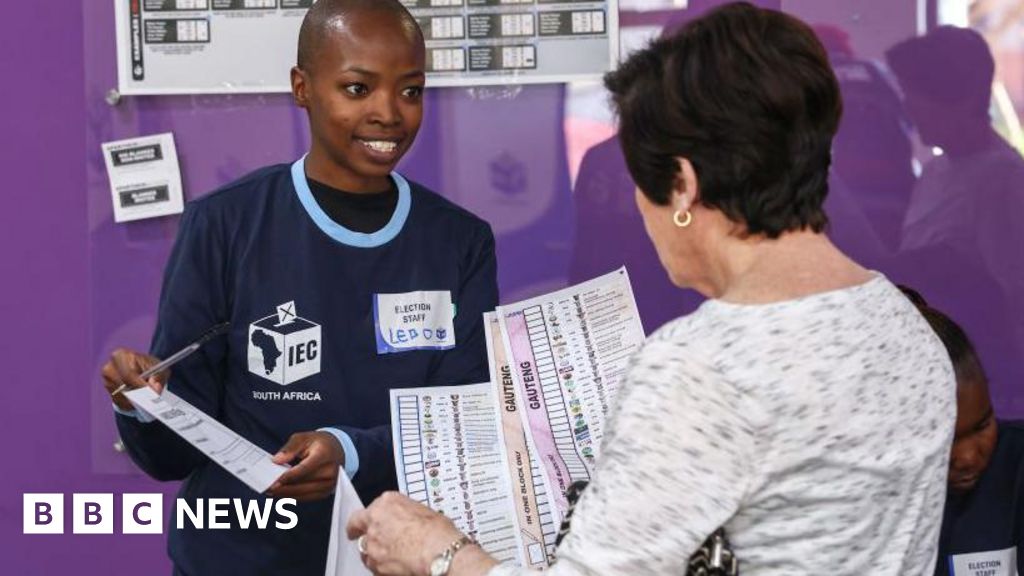South Africans will vote in the most crucial election since the end of apartheid in 1994.
More than 27 million people have registered to take part in a poll, underscoring growing political divisions after 30 years of democracy.
A record 70 political parties and 11 independents are taking part in the election, in which South Africans will vote for a new parliament and nine provincial legislatures.
Political analyst Richard Callan told the BBC: “The huge growth in the number of parties shows that people are disillusioned with the old big parties or, a cynic would say, people are looking to get into parliament and earn a pension. Chance.
The African National Congress (ANC) is seeking a seventh term in office since anti-apartheid icon Nelson Mandela led it to victory and ended white minority rule.
Although the party is confident of a “decisive victory”, polls consistently indicate that it will lose its parliamentary majority for the first time, forcing it to form a coalition with one or more opposition parties.
Professor Callan told the BBC: “We are entering the next phase of democracy and it will be a major shift.”
“Either we become a more competitive and mature democracy, or our politics will become more divided,” he added.
The main issues of the movement are widespread government corruption, high unemployment (especially among young people), deteriorating public services, and rampant crime.
The main opposition Democratic Alliance (DA) has signed an agreement with 10 other parties to form a coalition government if it gets enough votes to oust the ANC.
But this is highly unlikely as the ANC is expected to remain the largest party, putting it in a leading position to lead a coalition government.
It received 57.5% of the vote at the last election, compared with 21% for the DA.
Former President Jacob Zuma caused a huge shock when he announced in December last year that he would abandon the African National Congress and instead run for the new political party uMkhonto weSizwe (MK) (meaning “Spear of the Nation”).
Although he is barred from running for parliament on contempt charges, his name will still appear on the ballot as Congress leader.
Polls show MK will get around 10% of the vote. The campaign is expected to perform particularly well in his home province of KwaZulu-Natal, where tensions have been high and some violence was reported during the campaign.
“The KwaZulu-Natal election is likely to get very chaotic – expect a lot of controversy and dispute over the outcome,” Professor Callan said.
55% of registered voters are women – About 15 million people, according to statistics released by the Election Commission.
In terms of age group, those aged 30 to 39 have the largest number of registered voters. They account for nearly 7 million of the 26.7 million voters.
However, Professor Callan said there are approximately 13.7 million eligible voters who are not registered, with the majority (8 million) being under the age of 30.
“They have turned their back on our young democracy. Our assumption is that they have lost hope, feel economically excluded and see no viable opposition,” he added.
Keabetswe Maleka, 29, who lives in Soweto, the center of the 1976 student uprising against apartheid, confirms this view.
In an interview with BBC Africa Daily podcast host Mpho Lakaje, he said he would not vote because public services were poor and he was unemployed.
“I was looking for a job. Nothing happened,” he said.
Another Soweto resident, Mawela Rezant, 66, said he would definitely vote in the hope that the next government would address unemployment and crime.
“I want to see our economy grow. I want to see the police out in force,” he added.
Police and troops have been deployed to polling stations across the country to ensure voting takes place peacefully and that ballots are not stolen.

